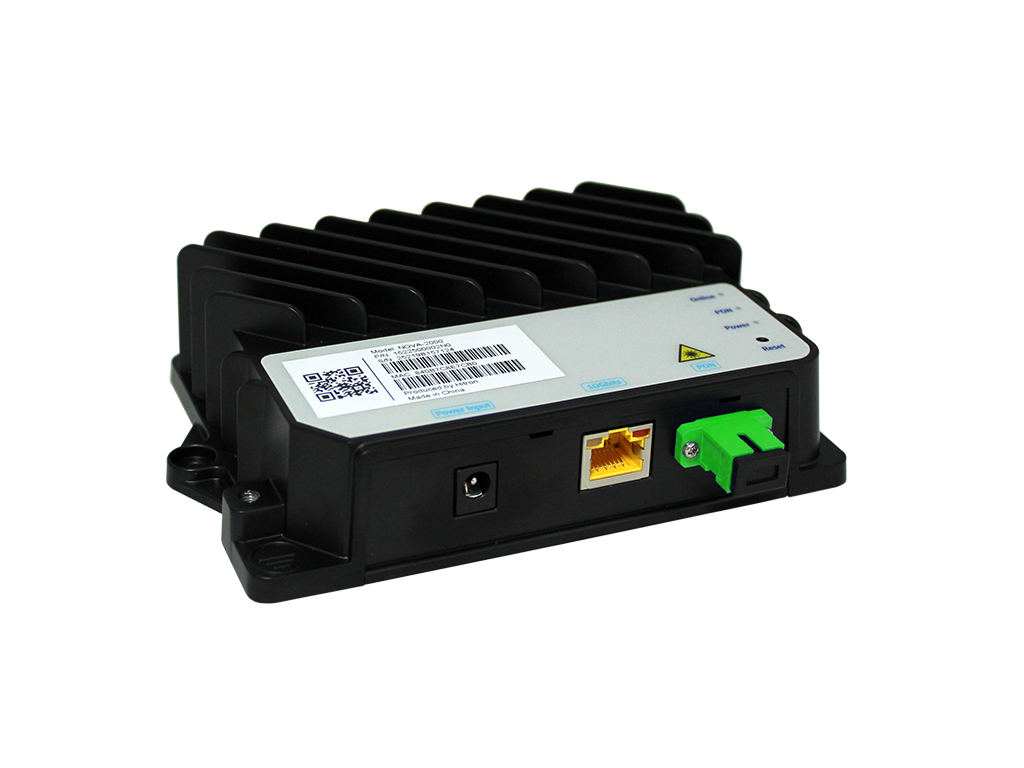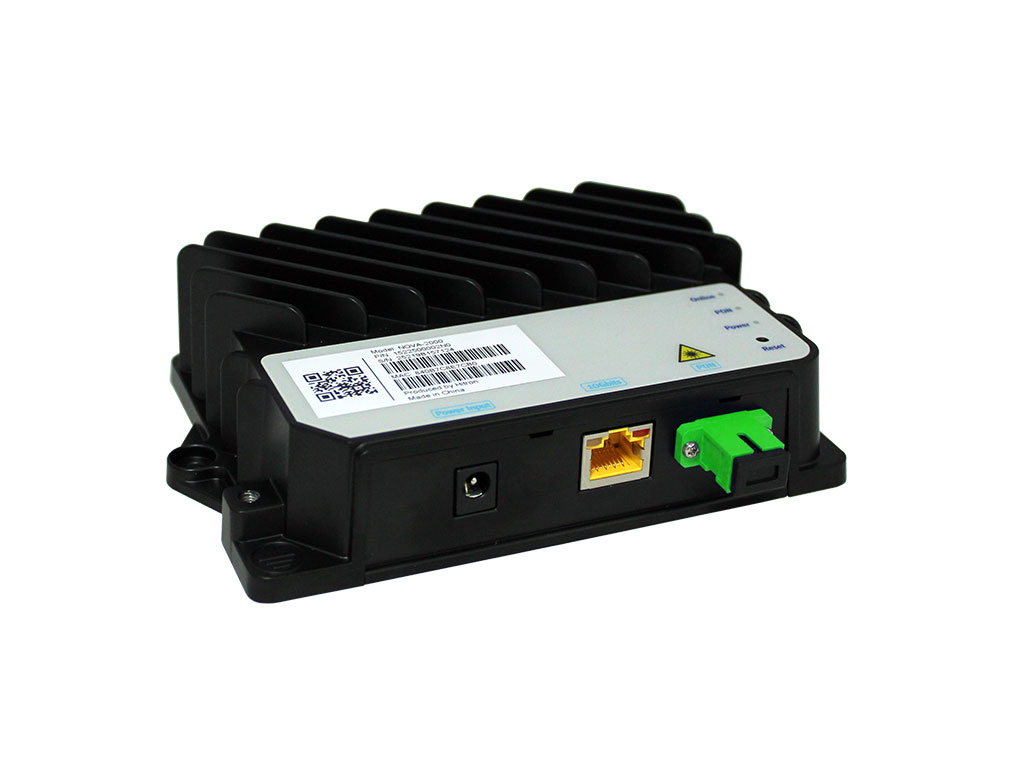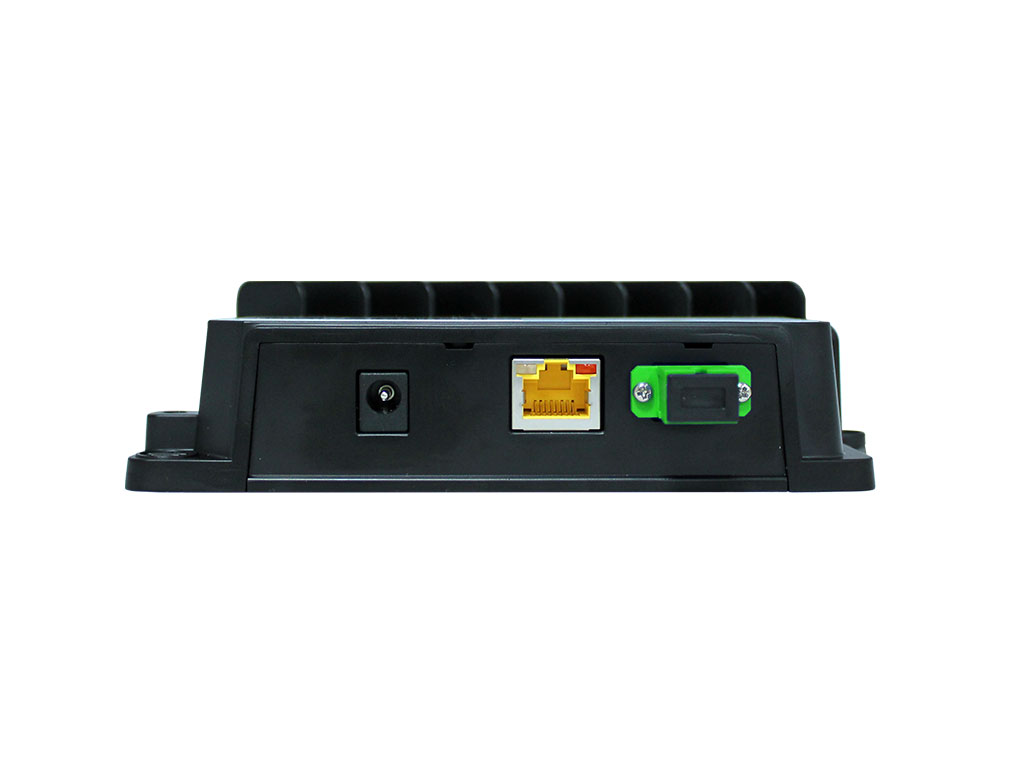10G Fiber Performance Across Standards
Supports 10G-EPON, XG-PON, and XGS-PON, enabling symmetrical multi-gig broadband access across any modern PON technology.
Ruggedized for Outdoor Deployments
Built with a hardened enclosure designed to endure dust, moisture, and extreme temperatures—ideal for both urban and remote field deployments.
Flexible Ethernet & Power Over Ethernet (PoE)
Offers a versatile 1/2.5/5/10G Ethernet port and supports optional 10G PoE, allowing flexible placement without AC power, up to 20 meters from a separate PoE injector/splitter.
Seamless Migration via DOCSIS DPoE 2.0
Maintains compatibility with existing DOCSIS provisioning ecosystems—appearing as a conventional modem to backend systems—and streamlining migration to fiber.
Advanced Configuration & OAM Support
Enables detailed operator controls via configuration files, along with robust OAM (802.3ah) for streamlined monitoring and diagnostics.
Benefits for Service Providers
- Rugged FLEXIBILITY: Supports indoor or harsh outdoor deployments for both dense and remote network nodes.
- Maximized Broadband Capability: True 10G symmetrical speeds deliver superior performance for high-demand users and services.
- Cost-Effective Fiber Transition: DPoE 2.0 maintains legacy provisioning systems while moving to cutting-edge fiber.
- Fast, Efficient Installations: Optional PoE power and compact design reduce complexity and equipment needs in the field.
Key Specifications
- PON Interface: IEEE 802.3av (10G-EPON), ITU-T G.987.2 (XG-PON), ITU-T G.9807.1 (XGS-PON)
- Ethernet Port: 1× 1/2.5/5/10GBASE-T (optional 10G PoE support)
- Power Options: DC 15V input or optional PoE injector (up to 20 m)
- Performance: Up to 10 Gbps downstream and upstream
- Provisioning: DOCSIS DPoE 2.0 compatible for seamless migration to fiber
- Management: IEEE 802.3ah OAM, configuration file support
- Design: Hardened enclosure for outdoor or rugged deployments
Documentation
A Complete Portfolio of Fiber ONT/ONU
Access Technology
XG-PON
XGS-GPON
XG-PON
XGS-GPON
XG-PON
XGS-GPON
XG-PON
XGS-GPON
XGS-GPON
Data Range
Ethernet Interfaces: (1G/2.5G/5G/10G)
One 10/100/1000
One 10/100/1000
One 10/100/1000
DOCSIS DPoE 2.0
Voice
---
Learn more about Fiber Optics, ONTs and ONUs
Fiber Optic Internet – A Complete Guide
This Fiber optic Internet guide will give you high-level information about everything you need to know about Fiber. It should help you understand essential information about how to make your WiFi better and how fiber fits into that. In this article, we will cover:...
5 Key Advantages of PON Internet
PON stands for passive optical network. It is a type of fiber-optic network. A PON Internet (shared fiber) system operates on an unpowered network (passive) meaning that it does not require any active components. Instead, it only uses fiber and passive components like...
Does FIOS use Ethernet or coax?
Short answer, FiOS users fiber-optic cables to reach your home. A passive optical network (PON) can bridge to a devices on the customer premises within the individual terminating unit using technologies such as Ethernet or coaxial cables. In other words, the devices...
What is the Difference Between EPON and GPON?
What You’ll Learn If you're comparing EPON and GPON, you’re likely working with or exploring fiber-based Internet networks. This article breaks down the difference between the two technologies, how they work, and what matters most for ISPs and end-users. And if you're...
What is GPON and How Does it Work?
Optical fiber networks operate on different passive optical network (PON) standards. A PON is a network system specific to fiber technology that delivers broadband network access to your home or business. One of many PON standards is GPON. GPON stands for Gigabit...


